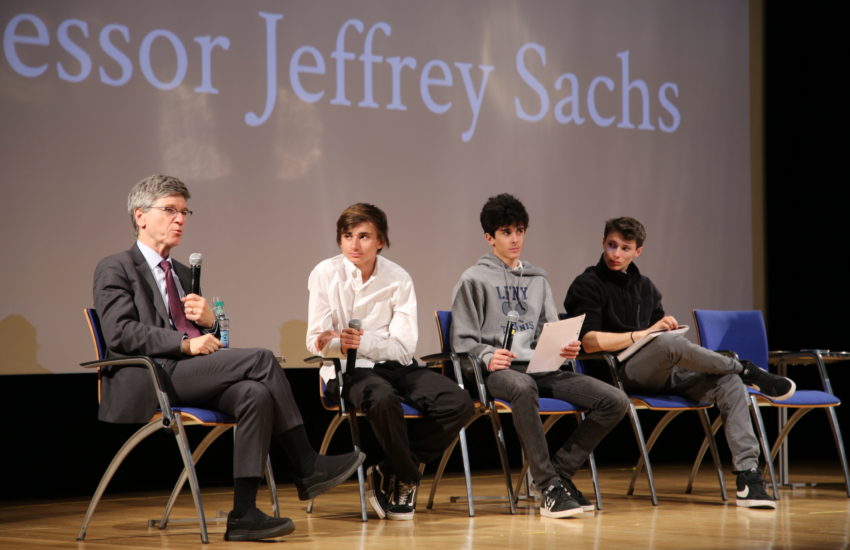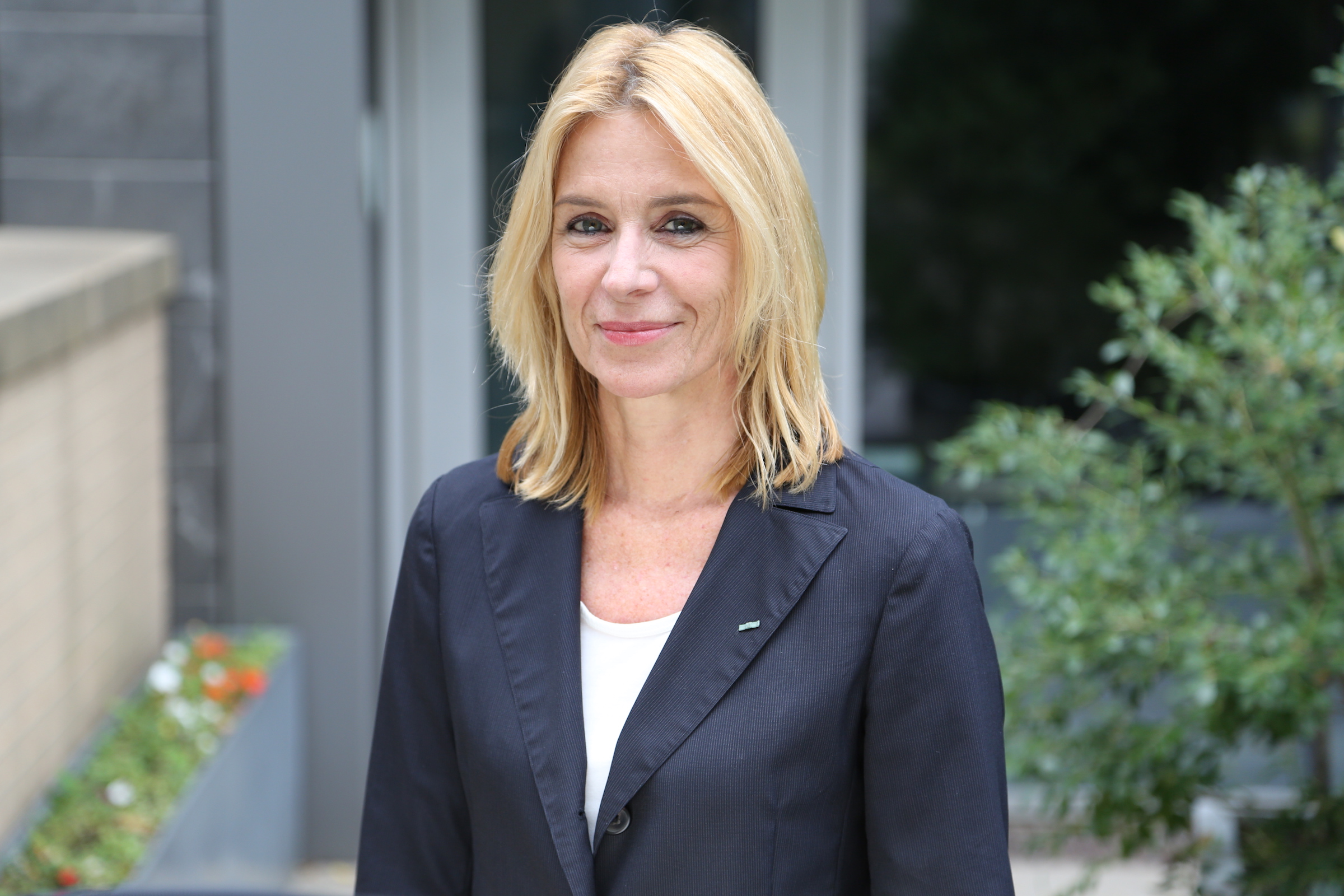The history of the Cultural Center of the Lycée Français de New York has been marked by some unforgettable conferences. Many diverse examples come to mind: the physicist Etienne Klein, economists Esther Duflo and Joseph E. Stiglitz, filmmaker Raoul Peck, and even the writer Gaël Faye. And, this past February 27, Professor Jeffrey D. Sachs. Each of these luminaries is known to excel in their scientific and cultural fields. They each have a way of igniting passion in students—passion for research, knowledge and experience. They speak with a clarity that makes us all smarter, and leaves us understanding the world a little better. Lycée alumni say it all the time: Our conferences are unforgettable and extraordinary. Even so, professor Jeff Sachs was an especially bright light on the Cultural Center’s calendar.
Director of the Center for Sustainable Development at Columbia University, and former Director of the Earth Observatory at the same university, Jeffrey Sachs managed, in two hours, to convince 10th and 11th grade students, as well as teachers and parents—if they were not already—that “there are only 30 years left to stop using fossil fuels (coal, gas, and oil),” and convert to alternative energies (solar, wind, nuclear, and on a smaller scale biomass). Beyond that, the planet Earth will become dangerous for human life. Already, the Earth’s temperature is 1.1º Celsius (around 2º Fahrenheit) higher than in pre-industrial times. Using the incisive image of a pilot flying a plane without fuel, and being forced to land, Sachs described the reform of energy consumption as the “only landing strip possible.”
Jeffrey Sachs is more than an expert—he is an activist. A tireless advocate for our planet, he travels the world, meeting with leaders from the ten most powerful countries to convince them to “not destroy the planet to enrich a handful of people.” America is obviously part of this club of ten. During his lecture, Sachs traced American history after WWII, marked by shifts in balances of power that were so well-analyzed by Arthur Schlesinger (in Cycles of American History (1986)), between Republicans and Democrats, and between more state or less state. “The role of the government is a problem. With Ronald Reagan, we lost the ideals of social democracy,” said Sachs, who is himself the author of a book on JFK. Since then, the pendulum seems to have swung toward liberalism. Of course, Sachs was not gentle about the current U.S. president, who withdrew from the Paris Accords (2015), “a diplomatic feat from Laurent Fabius,” according to the professor. Sachs was a consultant during the preparation of the agreements.
But none of this stops the economist from remaining optimistic, with his “Just do it” attitude. It is encouraging to look at the example of California, or to study the Democrats’ new program on environmental reform, the “Green New Deal.” An admirer of Aristotle, Sachs is an ardent defender of the Good, and the Good today is to protect our planet.
About the Author :
Pascale Richard joined the Lycée as director of the Cultural Center in 2011, where she aims to bring the best of French and American cultures through conferences, concerts, films and various events. In the fall of 2012, she launched the school’s Artist-in-Residence program. Pascale was previously Vice President of External Affairs at the French Institute Alliance Française (FIAF). Her background is in journalism and writing with a focus on lifestyle and fashion. She is a graduate of Sciences-po and holds a master’s in journalism from New York University.


